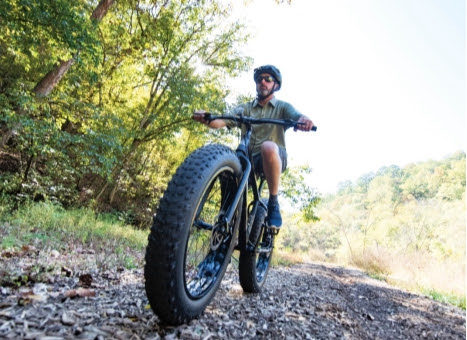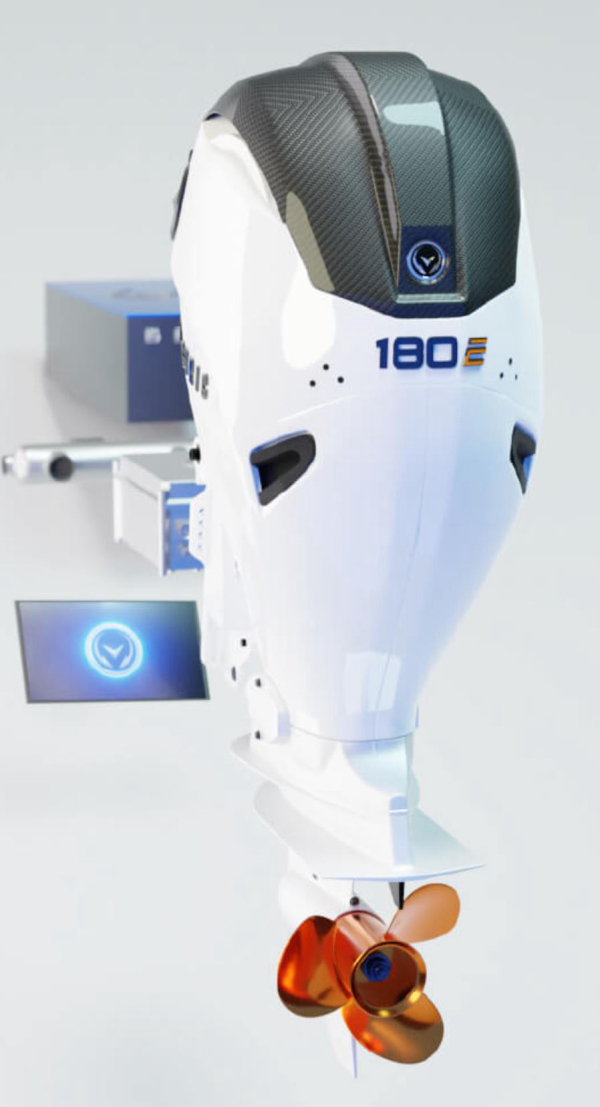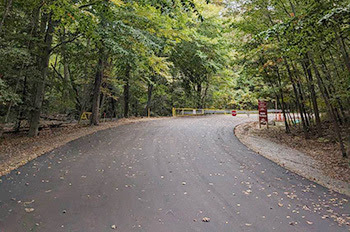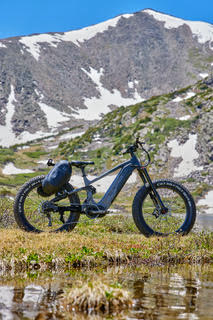Proposed change would expand allowable e-bike operation in Michigan
Land use update would affect state park-managed nonmotorized trails open to bicycles

Operation of Class 1 electric bicycles on state park-managed nonmotorized trails open to bicycles would expand under a proposed Michigan Department of Natural Resources land use change that could go into effect as early as this spring.
Under current Michigan law, only Class 1 e-bikes – e-bikes that are pedal-assisted and can go up to 20 miles per hour – are allowed on improved surface trails, which are trails that are paved or consist of gravel or asphalt. Current law also allows for local entities to expand or further regulate e-bike usage in their respective communities.
The proposed DNR land use change would expand allowable e-bike use to include Class 1 e-bikes on natural surface, nonmotorized trails on state park-managed land open to bicycles.
In addition, the proposed change would allow operation of Class 2 e-bikes
, which are throttle- and pedal-assisted and can travel up to 20 miles per hour, on both linear paved trails and state park-managed natural surface trails for mobility purposes as long as a cyclist had applied for and received a permit to do so. Currently, Class 2 e-bikes are allowed with a permit only on nonmotorized, natural surface trails (such as mountain bike trails).
This expansion would not apply on wildlife or state forest land trails that are open to bicycles. Also, Class 3 e-bikes, which are pedal-assisted and have a maximum speed of 28 miles per hour, would remain prohibited on any state-managed land under the new policy.
The 3,000 miles of nonmotorized state park-managed trails open to bicycles that would be affected by this proposed change may be viewed on the DNR’s interactive nonmotorized trail map.?If the proposed change is approved, signage indicating allowable e-bike use would be placed at trailheads.
“This change would make trails more accessible for people who may not have the physical ability to ride a traditional bike,” said Tim Novak, the DNR’s state trails coordinator. “This would include individuals living with disabilities, older adults and really anyone who wishes to experience some assistance as they ride a bicycle. Class 1 e-bikes require pedaling, providing a great health benefit to riders.”
E-bike use in Michigan – and beyond
As e-bike use grows across the country, with many states approving areas for their use, the Michigan DNR’s decision to expand use on specific state-managed trails involved many months of research and discussion by DNR staff and trail user groups.
“The DNR’s decision to move forward with this proposed land use change wasn’t based on a desire to be trendy, but rather on providing individuals with more recreation options while also being conscientious of our state’s natural and cultural resources,” said Nicole Hunt, regulatory unit manager with the DNR.
Considering federal government recognition of e-bike use also was part of the process, Hunt said.
“The federal government, recognizing the benefit of e-bikes for trail recreation, updated its federal grant funding regulations for nonmotorized, natural surface trail development to no longer prohibit use of e-bikes on trails developed with federal funds,” she said.
The DNR also researched how other states are allowing e-bike usage.
“We have benchmarked other states and local trail systems that allow e-bikes on natural surface, nonmotorized trails, and what we found was there haven’t been issues with conflicts or injuries or unnecessary wear and tear on our natural resources which would cause any reservation in expanding e-bike use,” Novak said.
The Arkansas state park system stood out as it has a vast number of trails, including mountain biking trails, and has allowed e-bikes for years with no issues, Hunt said.
DNR seeking public input?
A public survey about the proposed land use change is open through , and results will be shared during the Michigan Natural Resources Commission meeting. The proposed policy change will go before DNR Director Scott Bowen for action at the commission’s May meeting, with any approved change going into effect immediately thereafter.
The Michigan Natural Resources Commission, a seven-member public body whose members are appointed by the governor, conducts monthly, public meetings in locations throughout Michigan and has a portion of the meeting dedicated to items under the purview of the DNR’s director. The meeting takes place at Lansing Community College, 600 North Grand Ave. in Lansing.
The e-bike survey may be accessed directly at research.net/r/DNR-E-BIKE.
“We look forward to receiving this important public feedback about this proposed policy change,” Novak said. “We are sharing this survey widely in hopes of receiving input from as many people and perspectives as possible.”
Learn more about what qualifies as an e-bike in Michigan, the current e-bike policy on state-managed park land and survey details at Michigan.gov/DNR/Ebikes.
Contact: Nicole Hunt, 517-282-9970
|
|








